11-plus exam stress - Get a pass
I’m writing this for both of you.
Parent and child.
I want everyone in the family to avoid 11-plus exam stress.
Let’s be honest about 11-plus exam pressure
Are you a family that thinks sheer hard work and volume of work as the way to be successful?
Children simply can’t be driven too hard, or they will fail due to the pressure. Parents might persuade themselves that their children are coping well with the pressure, but often deep down they are not – and it will all come out on the day.
Do you feel the need to measure progress by doing test after test?
Children don’t learn by doing tests. Tests should only be used for accuracy and speed. A student getting 80% on tests due to a lack of knowledge only improves if they learn more, they won’t improve by doing another test.
Children thinking their parents are married to 11-plus success
This puts children in an awful place: feeling like they will be letting their parents down if they do not succeed. This can be a sign of too much pressure.
Okay. It might be child imposed, but it’s there and it can lead to freezing on the day. The fear of failure will get to them.
They will feel a huge amount of pressure.
Too much 11-plus talk
Conversations at home that continually revolve around the 11+. “How are you getting on with revision?”, “It doesn’t matter if you fail, we’ll still love you.” “Don’t worry, you’ll do well all your brothers and sister passed, you’ll be just like them.” Not helpful.
And then there’s school gate chatter. The chatter in the classroom.
Walk away.
The 11-plus and just the Eleven Plus
Are you staying focused? Some parents go too far. Going beyond the syllabus can set a child up to fail.
If work is made to be too serious or dry, the pressure mounts.
Parents who drive their children beyond the syllabus being tested can set their children up to fail. Children only need a deeper understanding of the syllabus.
Parents who boast about their child doing year 7 or 8 work or even GCSE questions tend to be setting up their children to fail. The extra knowledge they have learnt means they may not be able to work accurately with simpler questions or be able to work quickly enough.
Children deliver their best work when they are rested, happy and confident.
11-plus exam stress and what it does
Basically, stress overload means you can’t think straight. It’s harder to learn new things (revise). Be calm, remember things, think logically and be accurate on exam day.
Look for the signs
You know your child. The changes may be small and subtle or staring you right in the face. Most notably:
- Your child eats more or less
- Sleeps too much, or too little
- Withdraws from others, come across as cold, distant or snappy – door slamming etc.
- Procrastinating or neglecting responsibilities
- Showing nervous habits, such as nail-biting and pacing.
11-plus exam stress relief
Let’s look at your breathing
Breathing exercises can help you relax. They make your body feel like it does when you are already relaxed. Deep breathing is one of the best ways to lower stress in the body because when you breathe deeply, it sends a message to your brain to calm down and relax.
Keep a diary
I may ask you to keep a diary of your thoughts, feelings and actions in stressful situations and how they change over time – and what you can do to help yourself.
For example:
- Practice being in the exam room, be familiar with the space.
- Exercise and smile – try being stressed then! Also getting out and exercising boosts confidence: you’re not hiding yourself away.
- If you can take yourself to a place that “stresses you out”. Look around. Breathe deeply. Feel tall. Change how you think and feel in that moment. Forget the past, the future. Relax in the here and now.
And always remember. You’re not alone. You’re part of a team. We work together. You and me. I believe in you.
11-plus stress - where children have the advantage
By training, I’m a hypnotherapist, a Cognitive Behavioural Hypnotherapist to give me my full title. We know that children respond better than grown-ups to Hypnotherapy. They have more vivid imaginations because they are more creative. They find it easier to imagine success.









